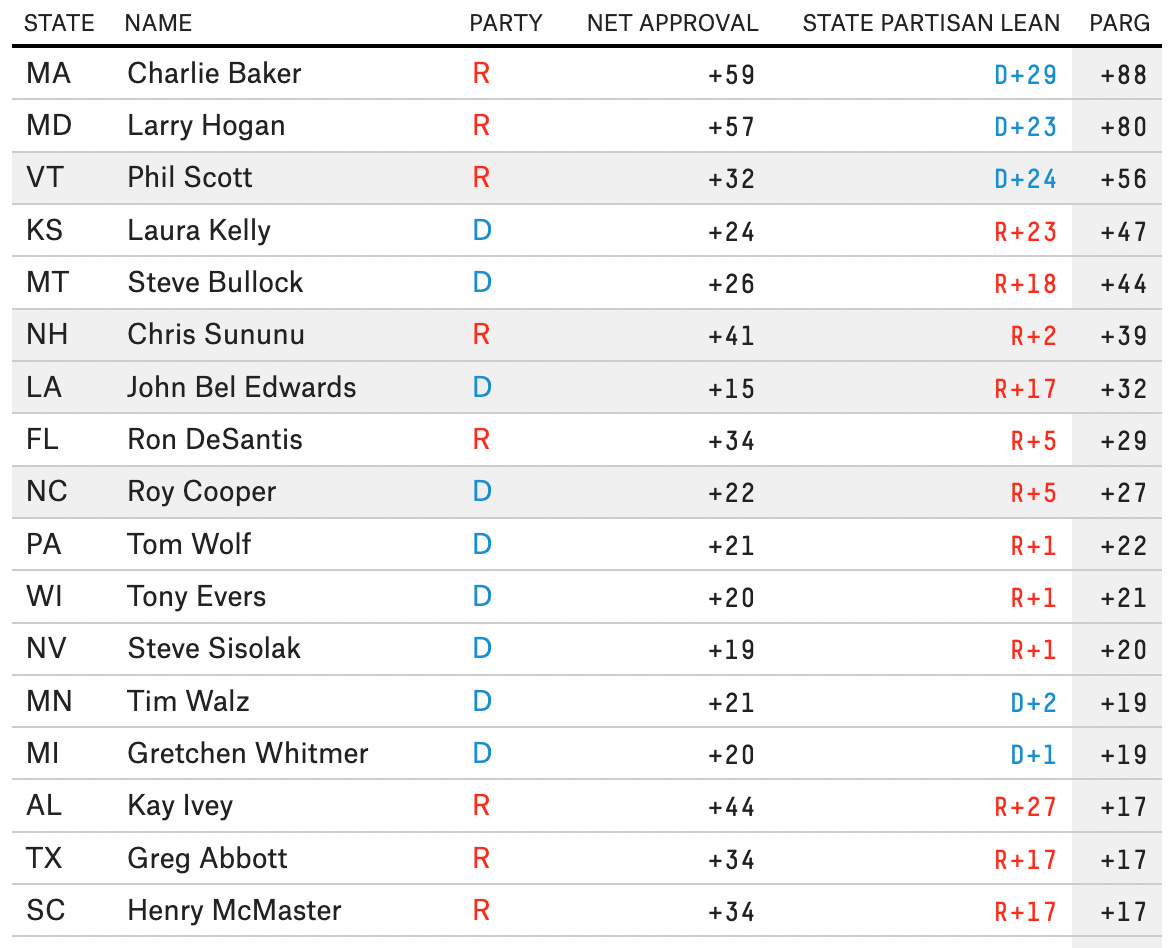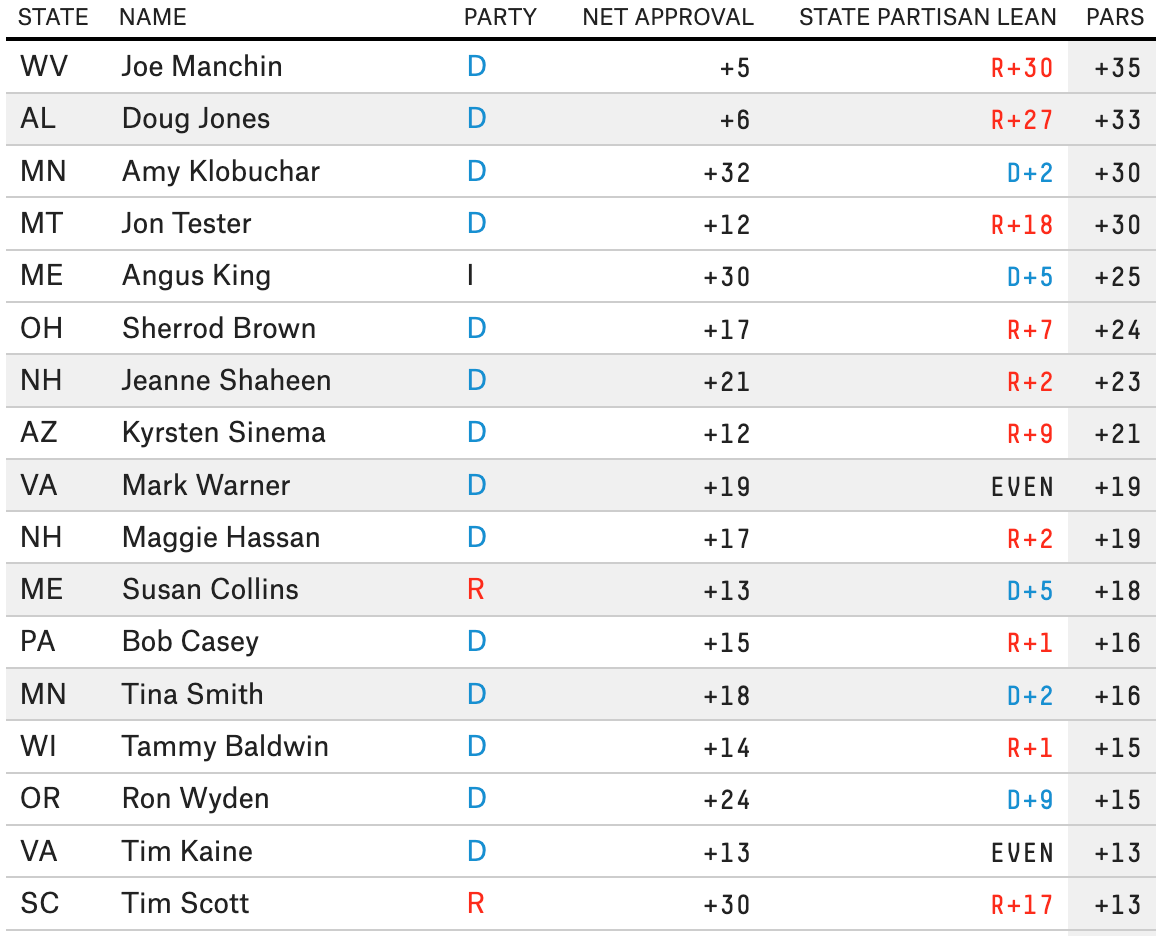A really obvious point that will probably make some people mad
Here are two basic facts about politics:
Figuring out how to win elections and be popular once in office is very important.
Doing the political science research necessary to demonstrate the best way to do that is really hard.
There are a few reasons for this second point. First, data quality in politics is often bad. Polling is hard (and getting harder) so figuring out what voters actually want is tricky. Second, you can’t really run randomized control trials of different political strategies. Parties want to win, and they’re not inclined to assign each of their 435 congressional candidates a slightly different strategy to produce the kind of data that would make it past peer review. Third, the effect size of any given political maneuver is generally pretty small. So without randomization and large sample sizes, it’s hard to know whether a politician's victory should be attributed to their policy ideas, the national environment, or local events.
In this situation, I think it’s useful to zoom out for a second, and to look to the states to try to find some broad patterns of what seems to work for politicians and what doesn’t.
The most popular governors and senators
Morning Consult regularly publishes approval ratings for every American governor and senator. But the numbers in themselves aren’t that useful. The most popular governor in the country right now is Mark Gordon of Wyoming, who boasts a 69% approval rating. But is Gordon popular because his policies and messaging are great, or because he’s a generic Republican in a state that loves Republicans?
It’s much more instructive to look at popularity relative to the partisan lean of a state. In 2019, FiveThiryEight’s Nathaniel Rakich put together a ranking of the most popular governors and senators “above replacement.”1 Here’s what the top 15 look like for governors:
And here’s the top 15 for senators:
Looking at these lists cuts through a lot of the noise surrounding debates on ideological positioning and political success. The story they tell is clear. Overwhelmingly, the most popular governors tend to be moderates – and specifically, moderates who act as a counterbalance to their state’s more extreme legislatures. As for senators, look at the names at the top of the list. Manchin. Klobuchar. Jones. Tester. Collins. Warner. Again, they tend to be moderates by brand, who avoid taking radical stances on policy, and cultivate a reputation for independence by bucking their party at times.2
Looking at popularity above replacement doesn’t “prove” anything about political strategy. There could be confounding variables – maybe the popularity of moderates is just a coincidence, and has nothing to do with their ideological posturing. Correlation isn’t causation, etc etc.
But in the words of XKCD’s Randall Munroe, “Correlation doesn't imply causation, but it does waggle its eyebrows suggestively and gesture furtively while mouthing 'look over there.'” The simplest, Occam’s razor style explanation is that there is a real connection here – one we should take seriously.
I think that the clear over-representation of moderates at the top of these two lists should strongly influence how we think about political strategy. At the very least, it should convey a sense of what works and what doesn’t in electoral politics. That’s not at all to say politicians should embrace centrism at every turn. But I think you should probably have a pretty strong prior that, all else equal, having a reputation for moderation will help you win elections, especially if you’re seen as independent of your party.
Writing it out like that, it almost seems so banal and obvious as to be not worth saying. But much of the progressive wing of the Democratic party has decided to ignore what was in previous eras a cornerstone of political conventional wisdom, so I think it’s useful to say anyway.
It’s not ideal that this data is three years old, but Morning Consult stopped updating their governor and senator approval rating tracking, and I didn’t have time this week to recreate FiveThirtyEight’s graphic myself. Overall, I don’t think much has changed since 2019. Joe Manchin still tops the senators list, with a 59% (!) approval rating in a state Biden got 30% of the vote in. I think Larry Hogan now tops the governors list, with a +52 approval rating in a state Biden won by 33%.
There’s one notable senator, who despite being far from a Manchin-esque moderate, nevertheless manages to be far more popular than his state’s partisanship would seem to dictate: Sherrod Brown. I don’t think it’s a coincidence that he’s also one of the senators who most emphasizes kitchen table economic issues, and tends to avoid making progressive social stances a major part of his brand.


No comments:
Post a Comment